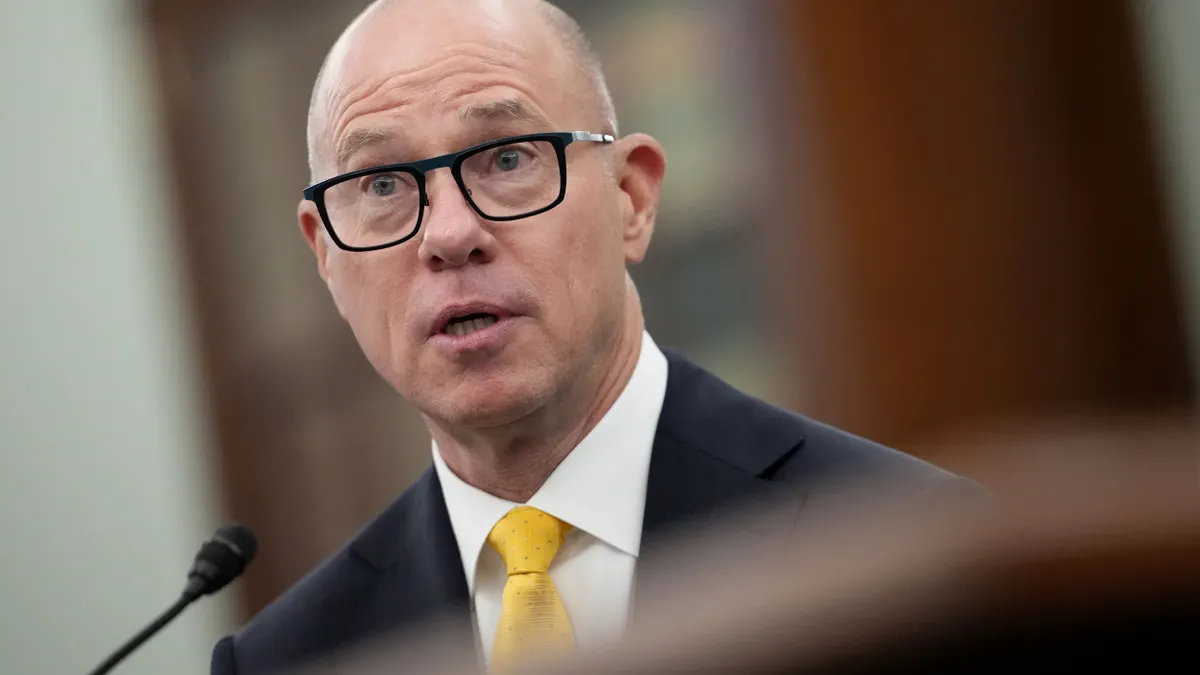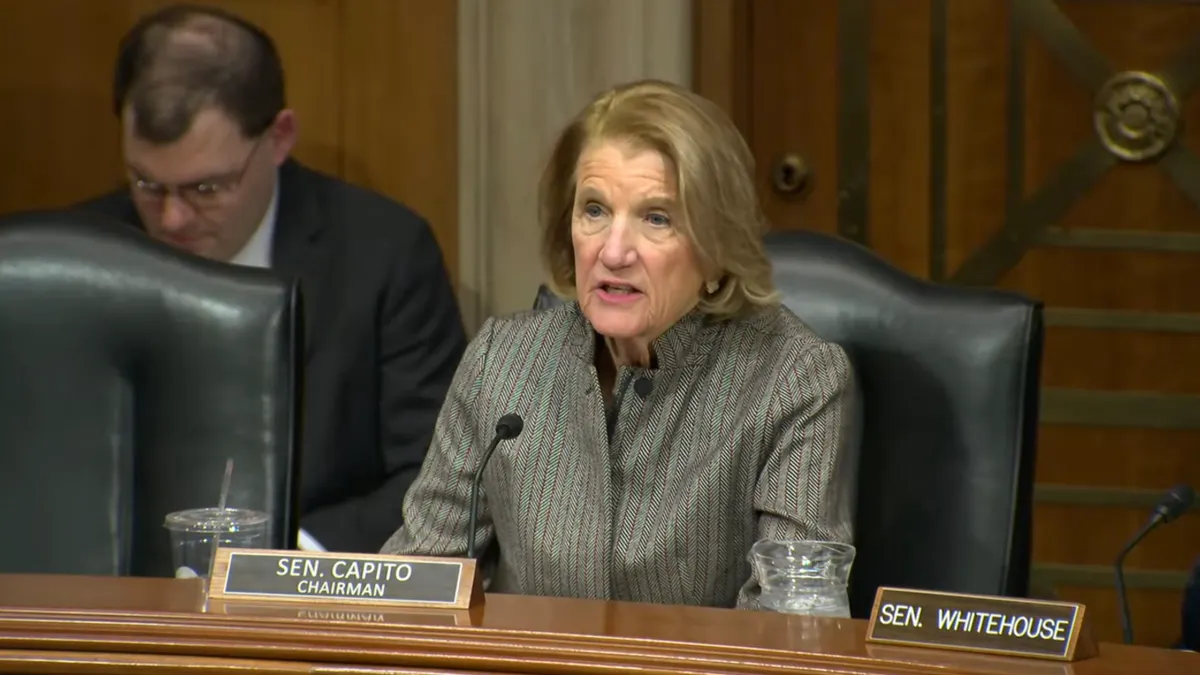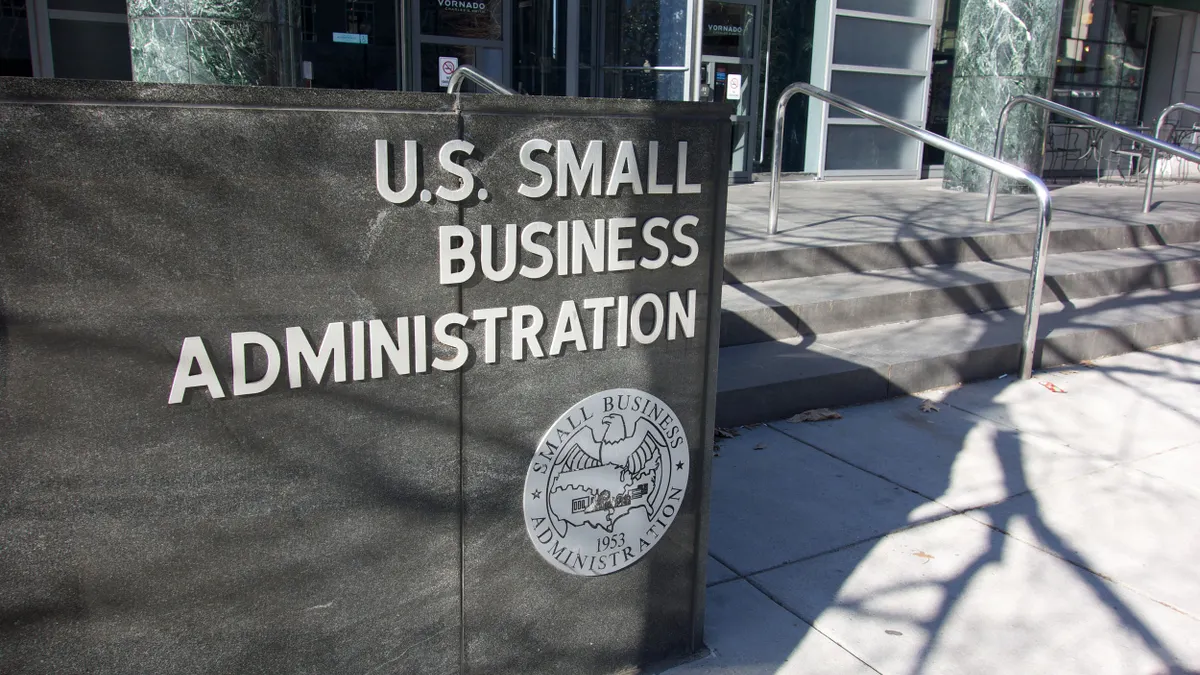The U.S. Senate voted 53-43 on Wednesday to confirm Bryan Bedford as the new head of the Federal Aviation Administration.
Bedford previously served as the president and CEO of airline company Republic Airways for over 25 years until he retired from the role on July 2. He succeeds Mike Whitaker, who stepped down from the administrator role Jan. 20.
President Donald Trump nominated Bedford to lead the FAA in March and has garnered support from Whitaker and other previous FAA chiefs, airline companies such as Southwest and JetBlue, as well as Airbus and trade groups such as the General Aviation Manufacturers Association.
“His decades of industry experience and knowledge, combined with his strong leadership skills, will be called upon to strengthen the agency and oversee the modernization of U.S aviation technology infrastructure,” James Viola, president and CEO of the General Aviation Manufacturers Association, said in a July 9 statement. “We are eager to work with the Administrator and the entire FAA team during this critical time as we work together to strengthen aviation safety and advance innovation.”
Bedford was questioned about the FAA’s safety management systems and its oversight of Boeing’s manufacturing processes at a Senate confirmation hearing last month. The agency altered Boeing’s production ramp-up plans, capping it at 38 planes per month, following last year’s incident involving the door plug blowout of an Alaska Airlines 737-9 Max plane. The FAA also increased its oversight of the plane manufacturer.
Bedford told the Senate Commerce Committee that he will hold Boeing accountable “to deliver a high-quality product safely.”
“I do believe there's data that we can use to make objective determinations, but we can also help Boeing by not simply saying, ‘This fails,’” Bedford said. “We can collaborate and tell them where the failures are and how we view remedies that can help Boeing move the process along a little bit quicker.”
Sen. Tammy Duckworth, of Illinois, grilled Bedford regarding an October 2024 Office of Inspector General’s report that found weaknesses in the FAA’s oversight processes and systems, which limited the agency’s ability to identify and resolve Boeing’s production issues. The OIG made 16 recommendations, including developing and implementing inspector guidance on assessing risk within the company’s manufacturing facilities.
Duckworth asked if Bedford will commit to not handing inspection authority back to Boeing until the FAA has implemented all 16 recommendations and the OIG considers them closed.
Bedford pointed out that the FAA renewed Boeing’s Organization Designation Authorization for three years, effective June 1. The agency’s Congress-mandated oversight program supervises and conducts inspections for companies in an effort to drive performance improvements, such as safety management processes.
“Boeing's got a long way to go before they're going to get another bite at that apple,” Bedford told the Senate committee last month.
Bedford’s nomination barely made it out of the Senate Committee on Commerce, Science, and Transportation last month, with the vote nearly split down the middle, 15 to 13. Lawmakers such as Duckworth and Sen. Maria Cantwell, of Washington, opposed confirming the newly delegated FAA administrator, saying that Bedford and Republic Airlines had pushed for an exemption from an FAA 1,500-hour pilot qualification rule in 2022, which the agency had denied.
The rule was put in place four years after the crash of Continental Flight 3407 in Clarence Center, New York, which killed 50 people, including one person on the ground. A 2010 National Transportation Safety Board investigation found that the pilots had not followed appropriate procedures in handling the aircraft as a result of inadequate training.
During the Senate confirmation hearing last month, Bedford said he would never do anything to reduce the competence and safety of U.S. pilots. However, he avoided committing to not trying to roll back the 1,500-hour pilot certification again.
The Families of Flight 3407 said in a June 18 press release that they opposed Bedford’s nomination.
“The fact that Mr. Bedford could not simply commit to keeping this key standard in place sends the wrong message to every American passenger and every family that has ever boarded a domestic airline flight,” Scott Maurer, who lost his 30-year-old daughter Lorin in the crash, said in a statement.






















